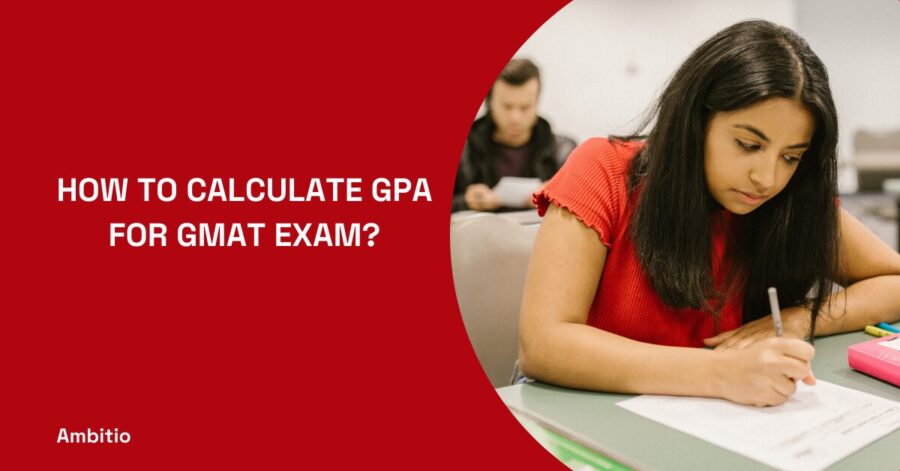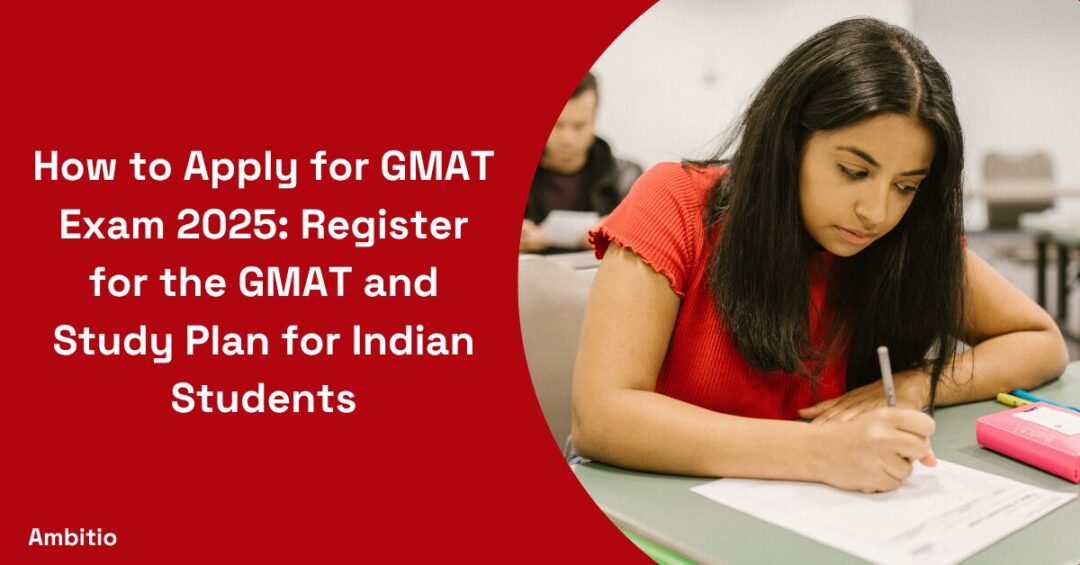4 September 2024
8 minutes read
GMAT Verbal Preparation: Improve Your Verbal GMAT Score

Key Takeaways
- Consistent practice with official materials is crucial for GMAT verbal success.
- Balanced focus on all three question types will yield the best results.
- Your study plan should be adaptable, based on your progress and weak areas.
“Words are, of course, the most powerful drug used by mankind.” – Rudyard Kipling
Facing the GMAT Verbal section can feel like navigating a minefield. Many test-takers find themselves stumbling over Reading Comprehension passages, second-guessing Sentence Correction choices, and drawing blanks on Critical Reasoning questions. It’s not just about understanding English; it’s about mastering the nuances of language under pressure. The clock ticks, anxiety builds, and suddenly those words on the screen seem more daunting than ever.
But here’s the thing: cracking the GMAT Verbal section isn’t about memorizing vocabulary lists or cramming grammar rules. It’s about developing a strategic approach tailored to how the GMAT tests verbal skills. Start by honing your active reading skills, practice identifying argument structures, and learn to spot common grammar traps. With consistent, focused practice and the right techniques, you can turn those verbal challenges into opportunities to boost your score.
Do’s & Don’ts to Remember During GMAT Verbal Preparation
Let’s dive into the do’s and don’ts of GMAT verbal preparation. These tips will help you focus your efforts and avoid common pitfalls in the verbal section of the GMAT.
Do’s
- Practice regularly with official GMAT questions, especially critical reasoning and reading comprehension so that you can master the GMAT time.
- Time yourself when solving each verbal question type
- Read complex passages daily to improve comprehension skills
- Analyze your mistakes in practice tests and the GMAT beginner’s guide.
- Focus on all three question types: Critical Reasoning, Reading Comprehension, and Sentence Correction

Don’ts
- Neglect any part of the GMAT verbal section
- Rely solely on memorizing vocabulary without understanding context
- Rush through passages without grasping the main ideas and inferences
- Ignore GMAT prep materials, including the GMAT Focus Edition
- Forget to balance verbal practice with quant prep for a well-rounded GMAT score
Remember, GMAT verbal preparation is about developing skills, not just accumulating knowledge. Focus on understanding passage structure, identifying argument flaws in critical reasoning questions, and recognizing grammar patterns in sentence correction. Practice tests are crucial – they’ll help you gauge your progress and get used to the actual GMAT exam format. You should also keep in mind that GMAT is an adaptive test. As you work through questions, pay attention to wrong answer choices too. They often contain valuable insights into test prep strategies. With consistent practice and the right approach, you can improve your verbal skills and boost your overall GMAT score, enhancing your business school application. Have a clear idea of why you take the GMAT exam as well.
How Many Questions are in the GMAT Verbal Reasoning Section?
The GMAT Verbal Reasoning section consists of 36 questions. You’ll have 65 minutes to complete this part of the exam, which means you’ll need to pace yourself carefully.
These 36 questions are divided among three types: Reading Comprehension, Critical Reasoning, and Sentence Correction. Each question presents you with five answer choices, and your goal is to select the correct answer for each. Choose the right GMAT books to help you with the process.
To prepare effectively, work through plenty of practice questions. This will help you get familiar with the format and improve your speed in identifying the correct answer. Also, understand the level of importance of the GMAT test. Remember, it’s not just about getting the right answers, but doing so efficiently within the time constraints.
How Much Time is Allotted for the GMAT Verbal Reasoning Section?
The GMAT Verbal Reasoning section allots 65 minutes for 36 questions. This timing is crucial for your GMAT preparation and overall study plan.
When preparing for the GMAT verbal section, use official GMAT practice tests and the GMAT Official Guide. Focus on all three types of questions: Sentence Correction, Critical Reasoning, and Reading Comprehension. Consider using additional resources like Veritas Prep or the GMAT Focus Verbal Section materials. Have a clear idea of the purpose of the GMAT exam as well.
Improve your verbal skills by working through practice questions regularly. Many test-takers find that consistent study time helps them achieve high verbal scores. Success in this section can significantly boost your overall percentile score on the real GMAT. Understand your GMAT preparation time and plan accordingly.
To effectively prep:
- Use a wide range of GMAT prep materials
- Take GMAT order selection seriously
- Take practice tests to gauge progress
- Develop strategies for tough questions
- Review GMAT grammar rules
- Practice reading complex passages and practice with GMAT official advanced questions.
With the right approach and study habits, you can master the verbal section and aim for a high GMAT verbal score. Remember, your performance here is a key step in your GMAT success and business school applications.
What is the Score Scale for the GMAT Verbal Reasoning Section?
The GMAT Verbal Reasoning section is scored on a scale from 0 to 60, with 60 being the highest possible score. Most GMAT test-takers aim for a high score in this range to boost their overall GMAT performance.
Your verbal score combines your performance on Sentence Correction, Critical Reasoning, and Reading Comprehension questions. To excel, develop a solid GMAT course study plan that covers all these areas. Use quality study materials like the official GMAT Focus verbal book and other specialized verbal practice questions.
Remember, a strong verbal score can significantly impact your total GMAT score. Many test-takers find that dedicating extra time to GMAT Sentence Correction and GMAT Critical Reasoning can lead to substantial improvements. Don’t underestimate the power of consistent practice with varied question types from the section of the GMAT Focus on verbal reasoning. You can go for a GMAT summer course to accelerate your learning process as well.
What Types of Questions are in the GMAT Verbal Reasoning Section?
The GMAT Verbal Reasoning section tests three main question types:
- Reading Comprehension: These questions assess your ability to understand complex passages. You’ll find them in every GMAT reading comprehension section, typically with 3-4 passages and 3-4 questions per passage.
- Critical Reasoning: These evaluate your logical thinking and argument analysis skills.
- Sentence Correction: Here, you’ll identify and correct grammatical errors in sentences.

To prep for GMAT verbal effectively, use a comprehensive verbal workbook that covers all these areas. Seek the help of reliable GMAT test guides. The latest GMAT syllabus emphasizes these question types, so make sure your study plan includes ample practice with each.
When you study for GMAT verbal, don’t just memorize rules. Practice applying your knowledge to actual questions tested on the GMAT. Many test-takers find that working through official reading comprehension questions helps them improve significantly.
Consider consulting a list of books recommended for GMAT prep. These often include specialized guides for each question type, helping you target your weaknesses and boost your overall verbal performance.
Is the GMAT Verbal Reasoning Section Computer Adaptive?
Yes, the GMAT Verbal Reasoning section is computer adaptive. This is a crucial step in your GMAT verbal preparation to understand.
Here’s how it works:
- The test starts with a medium-difficulty question.
- As you answer correctly, subsequent questions become harder.
- Incorrect answers lead to easier questions.
This adaptive nature means your score on the GMAT verbal isn’t just about how many questions you get right, but also about the difficulty level of those questions. Success in the GMAT verbal section requires not only knowledge of verbal concepts but also a strategic approach to the test’s adaptive nature.
When preparing for the verbal section, practice with adaptive mock tests. This helps you get comfortable with the increasing difficulty and time pressure. Remember, getting a GMAT verbal score beyond your target often comes down to mastering high-difficulty sentence correction questions and complex reading passages.
Focus on consistently improving your performance across all question types. Your success in the GMAT verbal section can significantly boost your overall score, potentially opening doors to top business schools.
Best GMAT Verbal Preparation: How To Prepare For GMAT Verbal Section?
To prepare effectively for the GMAT verbal section:
- Start with a diagnostic test to assess your current level.
- Enroll in a reputable GMAT verbal course or use self-study materials from former GMAT test-makers.
- Focus on all three question types: Sentence Correction, Critical Reasoning, and Reading Comprehension. Get your basics right, like the GMAT synonyms and antonyms.
- Practice regularly with official GMAT verbal questions. Remember, there are 36 questions in this section.
- Use reasoning books to strengthen your logical thinking skills.
- Take practice tests under timed conditions to improve speed and accuracy.
- Develop strategies for when you’re stuck between two answers. Do plenty of GMAT test series.
- Review your mistakes thoroughly. Your verbal score may improve significantly by learning from errors.
- Practice one verbal question type at a time to build specific skills.
- As you progress, focus on higher-difficulty questions to push your abilities. Try to master GMAT test taking tips.
Remember, consistent practice is key. Take a practice test every few weeks to track your progress. With dedicated study, you can get GMAT verbal scores that boost your overall performance.
Study Plan On How To Prepare For GMAT Verbal Section
To prepare for the GMAT Verbal section, start with a diagnostic test to assess your current level. In the first two weeks, focus on reviewing basic grammar rules and practicing easier Reading Comprehension passages. This will help you build a strong foundation.
Next, spend two weeks on Critical Reasoning. Learn to identify argument structures, assumptions, and conclusions. This will sharpen your analytical skills. Then, dedicate two weeks to Sentence Correction. Study GMAT-specific grammar rules and practice spotting errors in sentences.
In weeks seven and eight, master Reading Comprehension. Develop active reading strategies and work on improving your timing for longer passages. Follow this with two weeks of mixed practice, targeting your weak areas and taking full-length verbal practice tests.
Use the final two weeks for a focused push. Work on high-difficulty questions across all types and take timed section tests to simulate exam conditions. Throughout your preparation, consistently review your mistakes, read complex material daily, and take a full practice GMAT every few weeks. Adjust this plan as needed based on your progress and GMAT total marks.
Best Tips On How To Prepare For GMAT Verbal Reasoning
To excel in GMAT Verbal Reasoning, start by developing a consistent reading habit. Tackle complex texts daily, from academic journals to business publications. This builds your comprehension skills and expands your vocabulary in context.
Practice all three question types regularly: Sentence Correction, Critical Reasoning, and Reading Comprehension. Use official GMAT materials to ensure you’re working with authentic questions. Time yourself to improve speed without sacrificing accuracy.
For Sentence Correction, focus on understanding the logic behind grammar rules rather than memorizing them. With Critical Reasoning, practice identifying assumptions and conclusions in everyday arguments. For Reading Comprehension, work on active reading techniques and learn to quickly identify main ideas.
Take full-length practice tests under timed conditions to build stamina and familiarity with the test format. After each practice session, thoroughly review your mistakes. Understanding why you got questions wrong is often more valuable than getting them right.
Lastly, don’t neglect your overall well-being. Regular exercise, good sleep, and stress management can significantly impact your performance on test day. Remember, consistent, focused practice is key to improving your GMAT Verbal score.
Conclusion
Mastering the GMAT Verbal section is a journey that requires dedication, strategic practice, and a solid understanding of the test format. By focusing on each question type, developing strong reading habits, and consistently reviewing your progress, you can significantly improve your verbal score. Remember, success on the GMAT isn’t just about knowledge—it’s about applying that knowledge efficiently under pressure. With the right approach and persistent effort, you can achieve the verbal score you need to boost your overall GMAT performance and strengthen your business school applications.
Transform your GMAT preparation with Ambitio’s expert guidance. Our comprehensive approach includes personalized study plans, adaptive practice tests, and strategic insights, all designed to enhance your understanding and performance across the exam’s quantitative and verbal sections.
FAQs
How long should I study for the GMAT Verbal section?
Most test-takers benefit from 2-3 months of focused study. However, this can vary based on your starting level and target score. Consistency is more important than total study time.
Are some Verbal question types more important than others?
All three types (Sentence Correction, Critical Reasoning, and Reading Comprehension) are equally important. The GMAT balances these in scoring, so it’s crucial to perform well across all types.
How can I improve my timing on the Verbal section?
Regular, timed practice is key. Start by giving yourself extra time, then gradually reduce it. Also, work on quickly identifying wrong answers to eliminate them efficiently.
What’s the best way to improve my vocabulary for the GMAT?
Rather than memorizing word lists, focus on reading complex materials daily. This helps you understand words in context, which is more valuable for the GMAT.
Should I guess on Verbal questions I’m unsure about?
Yes, always guess. There’s no penalty for wrong answers, so it’s better to make an educated guess than to leave a question blank.
How important is the Verbal score compared to the Quant score?
Both are important, but a high Verbal score can help balance a lower Quant score. Some schools even place slightly more emphasis on Verbal scores.
Can I improve my Verbal score significantly in a short time?
While significant improvements usually require sustained effort, focusing on your weak areas and practicing test-taking strategies can lead to quick improvements. However, don’t expect miracles overnight.

You can study at top universities worldwide!
Get expert tips and tricks to get into top universities with a free expert session.
Book Your Free 30-Minute Session Now! Book a call now




























